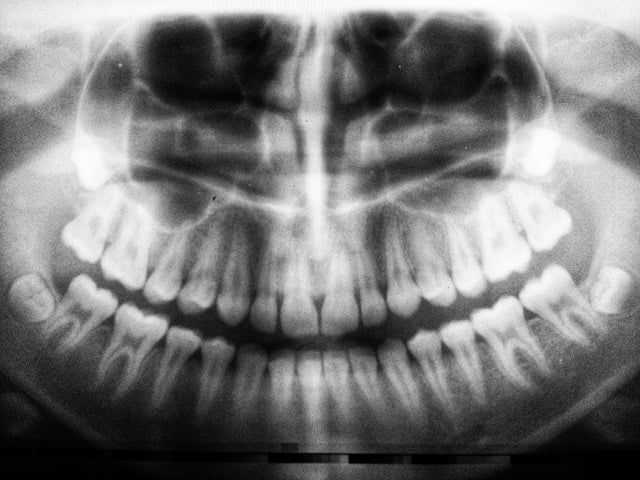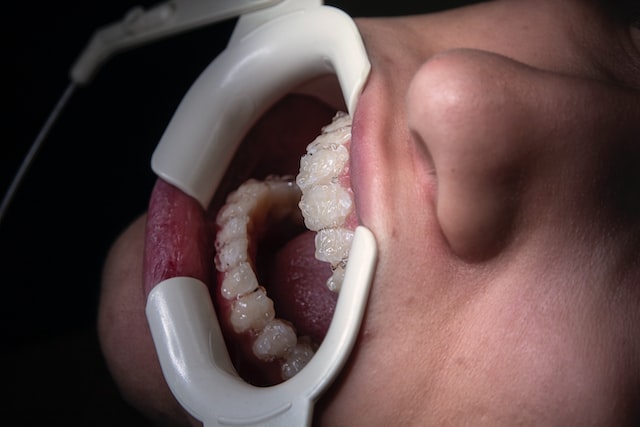Difference Between Veneers And Crowns
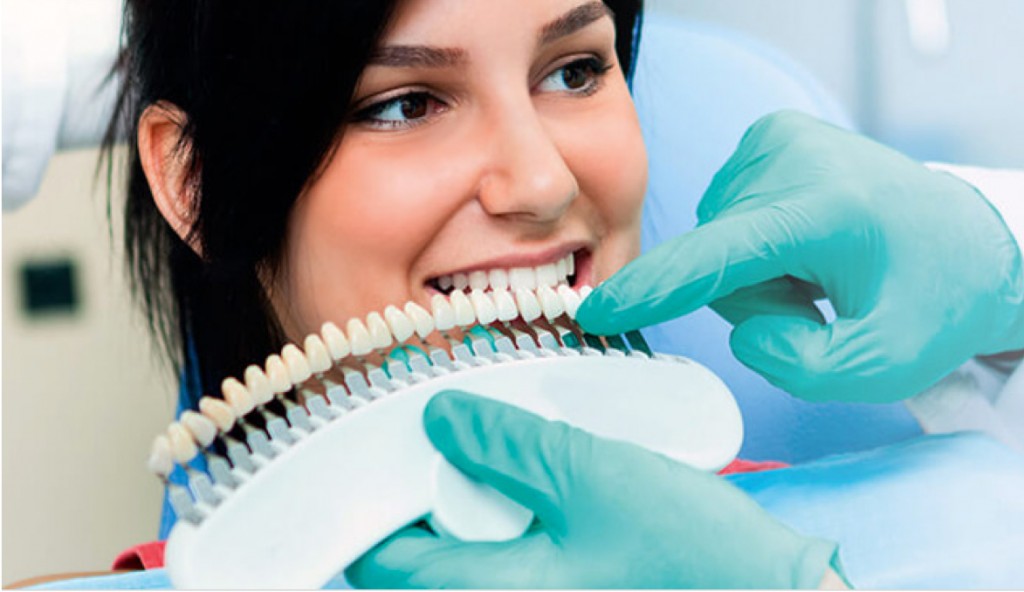
Are you in need of a dental restoration yet don’t know which type of procedure to choose? Crowns and veneers are two of the most popular dental restoration methods. So, what are the differences between veneers and crowns?
As a general rule, dental crowns are the best solution to protect teeth that are beyond repair. On the other hand, veneers offer a thinner layer of protection serving a better fit for cosmetic purposes. Like any dental procedure, it’s vital to weigh up the advantages and disadvantages of both.
What Are Dental Veneers?
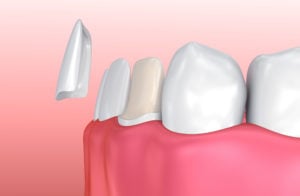
Dental veneers are a popular cosmetic dentistry option for those seeking to improve the appearance of their smile. They are thin shells made of porcelain or resin that are custom-made to fit over the front surface of your teeth. Veneers are designed to change the color, size, and shape of your teeth, providing a more aesthetically pleasing appearance. They are particularly useful for covering up cosmetic flaws such as chipped, stained, or misaligned teeth.
The veneers are bonded to the front of your teeth using dental cement, which creates a strong and durable bond. Once in place, they look and feel like your natural teeth, providing a beautiful, long-lasting smile. Overall, dental veneers are a great option for those looking to improve the appearance of their smile without undergoing more invasive procedures like dental crowns or bridges. They offer a simple and effective solution for enhancing your smile, giving you the confidence to flash your pearly whites.
Advantages of Dental Veneers
- Dental veneers are designed to look like a natural tooth
- They cover up discoloured or stained teeth
- You can choose the desired colour of porcelain veneers
- Porcelain veneers are stain resistant
- They provide a thin layer protection for chipped or worn teeth
- They cover uneven, irregular shaped or misaligned teeth
- They can help fill in unwanted gaps between teeth
- Gum tissue reacts well to porcelain
- They don’t require the extensive tooth preparation and shaping of dental crowns, providing a more conservative method of changing a tooth’s appearance.
Disadvantages of Dental Veneers
- They are permanent, therefore cannot be removed if you change your mind later down the track.
- Teeth may become more sensitive to hot and/or cold food and drink due to the removal of natural enamel.
- If you repetitively grind or clench your teeth, overtime, this can chip or crack veneers
Chipped or cracked veneers cannot be repaired. - The teeth under the veneers are still prone to decay.
What Are Dental Crowns?
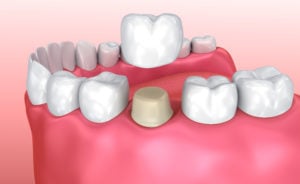
Dental crowns are a type of dental restoration that is placed over a damaged or decayed tooth to improve its strength, appearance, and overall function. A dental crown is typically made of porcelain, ceramic, metal, or a combination of materials and is designed to fit over the entire visible portion of the tooth. Crowns are cemented in place, encasing the original tooth and providing a protective barrier.
They are used to restore the shape, size, and strength of a damaged tooth, and can also be used for cosmetic purposes. Crowns are typically recommended for teeth that have large cavities, are broken or cracked, or have undergone root canal therapy. They provide a long-lasting solution for dental problems and can help improve the overall health of the mouth.
Advantages of Dental Crowns
- Protects a weak tooth from breaking
- Holds together parts of a cracked tooth
- Saves a tooth that can’t support a filling due to severe decay
- Restores a broken, chipped or worn-down tooth
- Supports a dental bridge
- Covers a tooth with a large filling, especially when the tooth is starting to crack or show signs of stress around the filling
- Covers a dental implant
- Modifies misshapen teeth or a bite that is not aligned properly
- Covers discoloured teeth
- Protects a tooth from stress caused by grinding.
Disadvantages of Dental Crowns
- Pain or sensitivity: You may experience discomfort shortly after the procedure when biting down. This generally means the crown is sitting too high, and can easily be adjusted by your dentist.
- Allergic reaction: The possibility of an allergic reaction to the mixture of metals or porcelain materials used in dental crowns is rare, however should be noted.
- A loose crown: If the cement gluing the crown onto the tooth washes away, the crown can loosen overtime and eventually fall off. This allows bacteria to find its way underneath the crown and onto the tooth, causing decay. If your crown feels loose, be sure to see your dentist.
Crowns or Veneers?
It all depends on your needs, budget and desired outcome. If you’re in need of a serious restoration due to tooth decay, a dental crown is probably the best choice for you. If you want a brighter, more aligned smile, perhaps you will benefit from veneers.
The best way to find out what your teeth really need is by discussing it with your dentist. Book an appointment with us today, and we will help you achieve your dental goals whilst keeping your best interests at heart. Phone us on (03) 9562 5156.



